|
This week will start the first project “(B)EUROPE: AN EXPERIENCE TO SHARE” from TGS Nazionale in collaboration with Don Bosco Youth-Net. The Salesian School from Soverato will travel with a group of 30 young people from 22nd to 26th February to Brussels to live a study experience dedicated to meeting the main European institutions and confronting the bodies and spaces of civil society. "(B)EUROPE: AN EXPERIENCE TO SHARE" in fact, aims at fostering experiences of active and European citizenship, deepening the common cultural roots and heritage as European citizens, confronting national and international institutions, acting as a bridge between multiple cultures and realities, rediscovering the educational and social side of experiential tourism. It is a project that wants to reflect the principles dear to Don Bosco: the growth of good Christians and upright citizens. As a Salesian association, we want to guide our members and participants through an educational and training experience that emphasises the connection between Christian values and being responsible and active citizens. An initial meeting with the participants took place on 27 January at the Salesian institute in Soverato with the mayor of the city to discuss the functioning of local institutions. Much of the meeting also focused on what it means to be an 'active citizen' nowadays.
0 Comments
This article has previously been published on www.donboscoyouth.net. On the 26th April 2023, DBYN was invited to participate in a European Parliament’s Breakfast Event titled: ‘Work and loneliness: Quality resting time for an improved mental health of workers.’ The Event organised by the European Sunday Alliance was co-moderated by the Members of its Steering Committee: the European Confederation of Independent Trade Unions (CESI), The Commission of the Bishops’ Conferences of the European Union (COMECE) and The Federation of Catholic Family Associations in Europe (FAFCE)
Sara Sechi & Simona Di Dio (DBI), Begoña Ros Gras (DBYN)
On 13th and 14th May 2022, the European Youth Forum, the largest European platform coordinating and representing more than 100 organisations among IYNGOs and National Youth Councils from all over Europe, met in Brussels for its first COMEM (Council of Members) this year, gathering young people from different European realities. Don Bosco Youth-Net sent two of its youth representatives: Gabriele Giovagnoli and Sara Sechi. Here are their testimonies: "Although it was not my first advocacy experience, COMEM always offers surprises and interesting food for thought. During the plenaries, various members of different European youth organisations had the opportunity to discuss and debate about news concerning the Forum and the challenges of advocacy for youth rights in Europe. The tensions and concerns caused by the Russian invasion of Ukraine characterised the representatives' speeches. The contribution of the Ukrainian and Belarusian representation was valuable to reflect together on the need to act more concretely to support not only these countries, but to strengthen the advocacy strategy. COMEM was an opportunity to meet again with people known from past events, but it was particularly interesting to get to know new representatives and their stories. This occasion allowed the two representatives to network with Don Bosco Youth-Net partners and to enrich their personal and professional background. Understanding European dynamics is essential to understand what contribution young people can make to their own realities as an active part of civil society." Sara Sechi "The COMEM is an event that always brings with it a lot of expectations for the delegates who attend it, and on this occasion too, they were fully met. Seeing in these difficult times so many young people come together both online and, most importantly, in presence to discuss and shape together the next steps for the renewal of the Forum was a pleasant and long-awaited return "to normality". In particular, the spirit of unity of purpose among all participants was very much perceived, even with occasional differences, as well as the vigorous desire to react and counter the challenges that destabilise the present and future of all of us young people (in particular by proposing concrete proposals towards problems such as the climate crisis, the precarious situation of youth employment, democratic and anti-civil society restrictions in some countries, etc.). There was certainly no lack of thought for the Russian war and invasion in Ukraine, with several moments of discussion on concrete acts of solidarity to be undertaken with Ukrainian and Belarusian citizens. All in all, it was an event that enriched me a lot, leaving me with different reflections and new ideas for the future, made me meet again old friends and made me get to know new ones, but above all, it allowed the various delegates to network together among hundreds of different realities all over Europe, helping us to strengthen together the possibilities and potentialities of us young people at local and international level.” Gabriele Giovagnoli Thank you Gabriele for writing this article and gathering the testimonies of Sara and yourself.
Heverlee (Belgium), 02 March 2020: Don Bosco Youth-Net ivzw, the European network of Salesian youth organisations, participated in the writing of the joint Position Paper: Inclusive Youth and Education Programmes. The document, subscribed by a large number of European and national civil society organisations, is an urgent appeal to political decision makers to take measures regarding more inclusive EU youth and education programmes. Don Bosco Youth-Net ivzw, connecting 18 organisations in 16 countries dedicated to youth and to young people with fewer opportunities, sees inclusive youth work as an essential part of their daily work. As implementers of inclusive youth work projects, DBYN strongly believes that truly inclusive education programmes at European level should be accessible for every young person. This position paper presents 9 recommendations and concrete practical suggestions for an inclusive implementation of the European youth and education programmes Erasmus+ and the European Solidarity Corps. These recommendations are based on the gathered experience of implementing the programmes in the areas of youth work, adult education, vocational training as well as school education and voluntary services. DBYN hopes that these recommendations will improve the new generation of programmes in order to facilitate the participation of ALL young Europeans. --- end press release --- Further information: Don Bosco Youth-Net ivzw Naamsesteenweg 37, B-3001 Heverlee · +32 (0)16 48 78 90 [email protected] www.donboscoyouth.net Deutscher Caritasverband e.V., EU Office Lisa Schüler EU Funding Officer Rue de Pascale 4-6, 1040 Brussels · +32 2 230 45 00 [email protected] www.caritas.de Heverlee (Belgium), 16th December 2019: In the fight against climate change, Don Bosco Youth-Net ivzw, the European network of Salesian youth organisations, has become a member of the Don Bosco Green Alliance, the worldwide collective of young people from the Don Bosco family of institutions, who contribute to global environmental action, thought and policy. The COP25 in Madrid is just over and many people are saying that “We've lost an important opportunity”. Just before the UN Climate Change Conference started, DBYN became a full member of the Don Bosco Green Alliance (DBGA). To become a member of the Don Bosco Green Alliance, you first need to be an organisation or institution in the Don Bosco world: we are. Secondly, you need at least three specific commitments towards protecting and bettering the environment. Here, we have asked you for ideas through a survey a few months ago and the three following commitments came out, which DBYN has approved for joining the DBGA:
Q&A Together with your suggestions, there were also some questions related to these commitments and our membership in the Don Bosco Green Alliance. Here are our answers (we have summarised some questions): Will it be an extra cost for DBYN? Or an investment? Let's be clear: to stop or limit climate change, we (human beings) have to pay and we have to make investments. Sometimes with money, but even more importantly, we have to change some of our habits and our “Western” way of living: this seems to be the tricky part. Why should I take the train when I can save 5 hours taking a flight? In order to do this, we have to invest time and maybe money, but booking in advance makes even a train ride cheaper than a flight. Some people might have the feeling that they are losing flexibility and we have to change our habits. But on the other hand, if we are not doing it, we will have to invest much more in a later time. That is the overall truth. There is also the option to save money and resources: for example, if DBYN manages to organise online meetings (commitment 3a), our expenditures for travelling will get less. It is the same with commitment 3b: if we recycle and reuse material on our own, we can save money and resources and more vegetarian food also means lower costs for the meals (commitment 1). For the second commitment, we just have to use the knowledge and resources that we have in our network meaning that no further investment is needed on this level either. The possibility also exists to allocate new funding possibilities for DBYN and its MOs if we get more engaged in the topic of sustainability. Is it possible to offer organisations customised information about this subject (sustainability, environmental protection, Laudato Si, etc.)? Sure it is. As soon as we will have developed a session on the topic or developed/found good practice within our network, we will let you know. We also cooperate with other INYGOs on that topic on a European level. But we also need your help. If you have a really good practice, example, success story, etc. let us know and we will share it online, but also during our activities. To stop climate change, everybody has to do their part, but overall, we have to work together. The survey for the commitments and our membership in the DBGA are just the start, let us work together for the rest. 🌍 Further information Don Bosco Youth-Net ivzw Naamsesteenweg 37, B-3001 Heverlee • +32 (0)16 48 78 90 [email protected] www.donboscoyouth.net Don Bosco Green Alliance +91 - 982 182 2057 [email protected] www.donboscogreen.org ‘I, Youth Advocate’ was a seminar for youth representatives in partnership with MIJARC Europe organized as a study session in the European Youth Centre of Budapest and took place from the 06-11/10/2019. It aimed to train volunteers of DBYN’s and MIJARC Europe member organisations to become active in advocacy work, relevant for the network.
34 participants, 4 trainers and several experts from all over Europe came together to learn and teach about Human Rights based advocacy. The study session took place in the European Youth Centre of Budapest, which offered us both financial and content based support. Furthermore as the European Youth Centre stands for “Access to Rights” and “Youth Participation” their policy framework was an ideal basis for the learning programme. The first day of the study session we learned about its aims. After that we tried defining ‘advocacy’. This way, the theme became a lot clearer to most of the participants. Next to that we also got an information session about the Council of Europe and how it works. Some participants were already used to work in intercultural groups, but for some is was new and they needed more time to get used to it. The group was however very understanding about that and this only became better during the study session. On Tuesday we learned about the 9 steps of the advocacy circle. Next to these 9 steps, there were also 3 actions explained that you can/have to keep doing during the whole advocacy process. While working in groups with a self-chosen topic, we learned to use the information we had gotten and doing so the information became clearer. After that, there was an information session about the European Youth Forum (YFJ), given by one of its board members. We learned about the Human Rights-based approach of the YFJ, about rights holders and duty bearers and also about the difference between policy and politics. A clear example that was given was about how the YFJ has a collective complaint / a legal case against Belgium about unpaid internships. A first, success resulting from this action was the ban from the European Parliament against unpaid internships. Now, the YFJ is waiting for when and how Belgium will react. The third day, we played a very interesting and educational simulation game. It began with an explanation about the Council of the European Union and its president, the European Council and its president and The European Commission. This was needed to understand what the game was all about and to develop a strategy to play it. To play the game, we were all given a fictive role and in this way we were divided into four groups: the Commission, the European Parliament, the Council (of the European Union) and interest groups. While playing the simulation game, we learned a lot about the legislative procedures that are used in the given organisations and also about lobbying, setting up meetings, who to address and also about listening to the opinions of interest groups and other parties. The last day, we worked in our organisation groups (MIJARC and DBYN). We discussed about what this study session and advocacy in general can mean for our organisations. In smaller groups we then worked on possible actual projects with self-chosen topics. After that there was an information session for all the participants about the European Youth Foundation (EYF), its available grants and how to apply for them. When applying, it is very important to explain to EYF the link there is between your project and Human Rights. The programming Committee (8 youth representatives and 8 governmental representatives) then decides about the approval of the projects. Our previous intern, Sara Sechi from Sardinia is now member of our pool of youth representatives.
Here you can read her testimonial : "The General Assembly of the European Youth Forum took place in Novi Sad, Serbia (22th-24th November 2018). This was my first experience as Don Bosco Youth Net’s delegate. A heap of energy and hope, a space where young people from different countries and realities can meet and have their voice heard, a stimulating dialogue about youth rights: this is the European Youth Forum. I had the opportunity to be part of a value-based cooperation, to discuss about current youth topics as fair-paid internships and the right to conscientious objection to military service in Europe. I realized how important it is that young people fight for their rights and take part actively in the European youth policy process. As Federica Mogherini said in her video message: “The future begins today, not tomorrow”. Many thanks to DBYN which trusts me and let me live this great experience!" Sara Sechi Gabriele Giovagnoli, one of our members of the Pool of Youth Representatives, represented DBYN at the European Youth Forum.
Here you can read his testimonial of his experience: "It's always possible to go further, no matter how small seems the step taken or how far is the goal." I deem it as one of the most important lessons I learnt from this experience at the YFJ. During those three days, as representatives of several National Youth Councils and International Non-Governmental Youth Organizations (Wosm, Ymca, Obessu, Nayora, IFM-SEI, Iynf, Ojv, Esib, YFJ, DBYN), we've shared experiences, dreams and aims of our own projects and organisations, recognising ourselves united under the same spirit despite our operational differences. Beginning on Friday afternoon with "getting to know" activities (both on ourselves and on the topic of the meetings) we got deeper into the core of the event, also through joint sessions with the EYF grantees, sharing our activities in the field of social inclusion, volunteering experiences, refugee-related projects. Then we analysed the role our target groups plays within our projects, both in the making and in the implementation (especially focusing on refugees), and also the level of their participation inside the organizations (through useful tools as the 'ladder of participation'), keeping in mind and inspecting the functioning and the structure of our own organizations. From here we moved to the "one step\steps forward" studying and debating new possible goals and strategies to adopt in order to develop the participation and the inclusion of refugees within our organisational structures and in our activities. Eventually we closed the meeting putting into effect our work developing a personal action plan. An opportunity I will keep in my heart and for wich I'm really grateful, thanks to it I met wonderful people, increased my links with other IYNGOs, delved into a lot of current topics under new points of view and perspectives, listened and became part of amazing and fascinating life stories!" Gabriele Giovagnoli - TGS Salerno & representative of DBYN 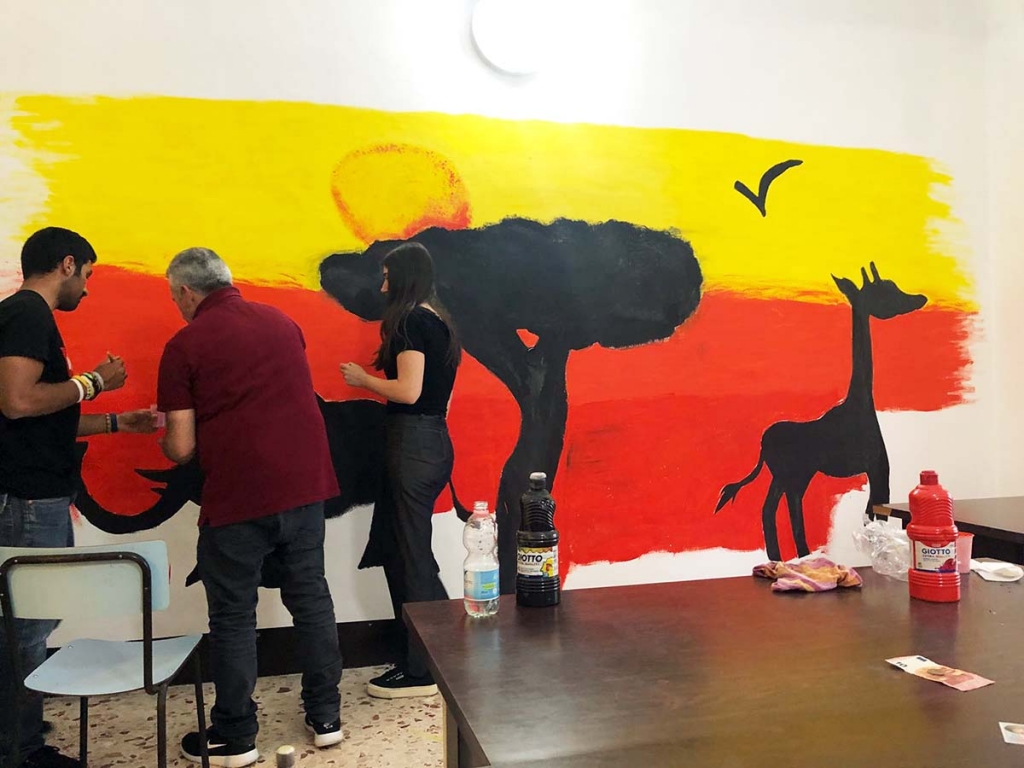 They are children and young people who come by sea, on old boats that are unstable and overloaded, risking their lives almost to every wave. Often they do not understand Italian well and certainly are not aware of all their rights, nor of what awaits them. If they left on their own, or remain alone on arriving, what they may find is a future as clandestines, marginalized. But sometimes, things go differently, because there are also people who do think of them: like the Salesians of the "San Gregorio" community of Catania, in Sicily, which inaugurated a new house yesterday, May 2; its name: Najma, which means star in Arabic. The phenomenon of Unaccompanied Foreign Minors (MSNA) is clearly growing in Italy. And behind every statistical number, there is a life, an existence, that has been uprooted and completely isolated, exposed to forms of social risk such as crime, abuse, violence, poverty ... To offer human and Christian solutions to this phenomenon, the "Salesians for Social - SCS / CNOS Federation" started "M'interesso di te", or “I take interest in you, care for you”, at the beginning of 2018, a program which includes, among other tasks within Catania's Salesian world, the San Gregorio Center, on the outskirts of the city. As early as February, street educators, counselors, psychologists, lawyers and volunteers have been guaranteeing each child intercepted their support and protection, but only yesterday did the Salesians of San Gregorio and the Associazione MetaCometa Onlus officially inaugurate their headquarters. Present at the opening: the Provincial of the Salesians of Sicily, Fr Giuseppe Ruta, the Vicar General of the Archdiocese of Catania, Mgr. Salvatore Genchi, and institutional figures of both the Christian and Muslim religious, civil and social world. At the Catania's Najima "low threshold" center (ie for people in extreme difficulty), the so-called "invisible migrants" - MSNAs or recently of adult age - have the chance to wash, eat hot meals, rest, participate in activities of recreation and socialization. The "Najma" reception center also carries out social mediation work with related institutions and offers orientation courses for study and work, with the creation of study grants and job grants. Since many of the "invisible migrants" are exposed to the risk of addictions, health problems and exploitation, a legal advisory service is also available to them, both criminal and civil, and support in processing their personal document. http://www.infoans.org/en/sections/news/item/5387-italy-najma-house-for-invisible-migrants On 26th April, in the premises of COMECE (Commission of Bishops’ Conferences in the EU) took place the first European gathering of International Catholic Youth Organisations, in which Don Bosco International, as a facilitator and coordinator of the meeting, and Don Bosco Youth-Net as one of the most active Catholic Youth Organisation were represented.
The meeting was opened by Fr. Olivier Poquillon op, secretary general of COMECE, very supportive of this process, as there is a clear need and will from the bishops’ representation in Brussels to have young people’s voices heard by the institutions. The content of the meeting was very diverse: the presence of some organisations in the European Youth Forum, the new policy updates at EU level (such as the new Erasmus+, European Youth Strategy or the difficulties with the current EU grants), the work done with migrants and refugees by the different youth organisations, and the follow up of the Synod on Youth, in order to find possible ways to establish social and political dialogue with different stakeholders at national and EU level. |
DBYNIn this blog, Don Bosco Youth-Net collects and publishes its news, VLOGS, policy statements and other information linked to our advocacy work. Categories
All
Archives
February 2024
|
- Home
- About
-
Training
- Upcoming activities >
-
Past activities
>
- Youth Guardians
- Rise: Design for emergent futures
- Mental Health in Youth Work
- Yout(h)echnology
- European School of Animators 2023
- The Future is Europe
- Voices of Youth 2022
- Educate to Elevate Youth
- SoS-Safeguarding
- Play It Covid-Safe!
- Coping over coffee
- Statement Coronavirus
- I Youth Advocate
- Camino
- European Summer School of Animators 2019
- The Journey Never Ends
- European Summer School of Animators
- Ready, Steady, Go !
- Advocates for Education
- Common ground
- Rise Up !
- DB4R >
- En Route >
- All Alien
- You(th) for Human Rights
- Generations of Participation - Past training
- Advocacy
- Resources
|
The international secretariat of Don Bosco Youth-Net ivzw is financially supported by the European Union, through its 'Erasmus+'-programme, and by the Council of Europe, through its 'European Youth Foundation'. This website is a publication of Don Bosco Youth-Net ivzw. The website reflects the views only of the author, and neither the European Commission nor the Council of Europe can be held responsible for any use which may be made of the information contained therein.
|
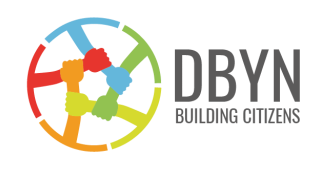
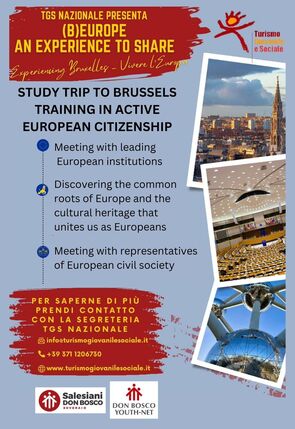
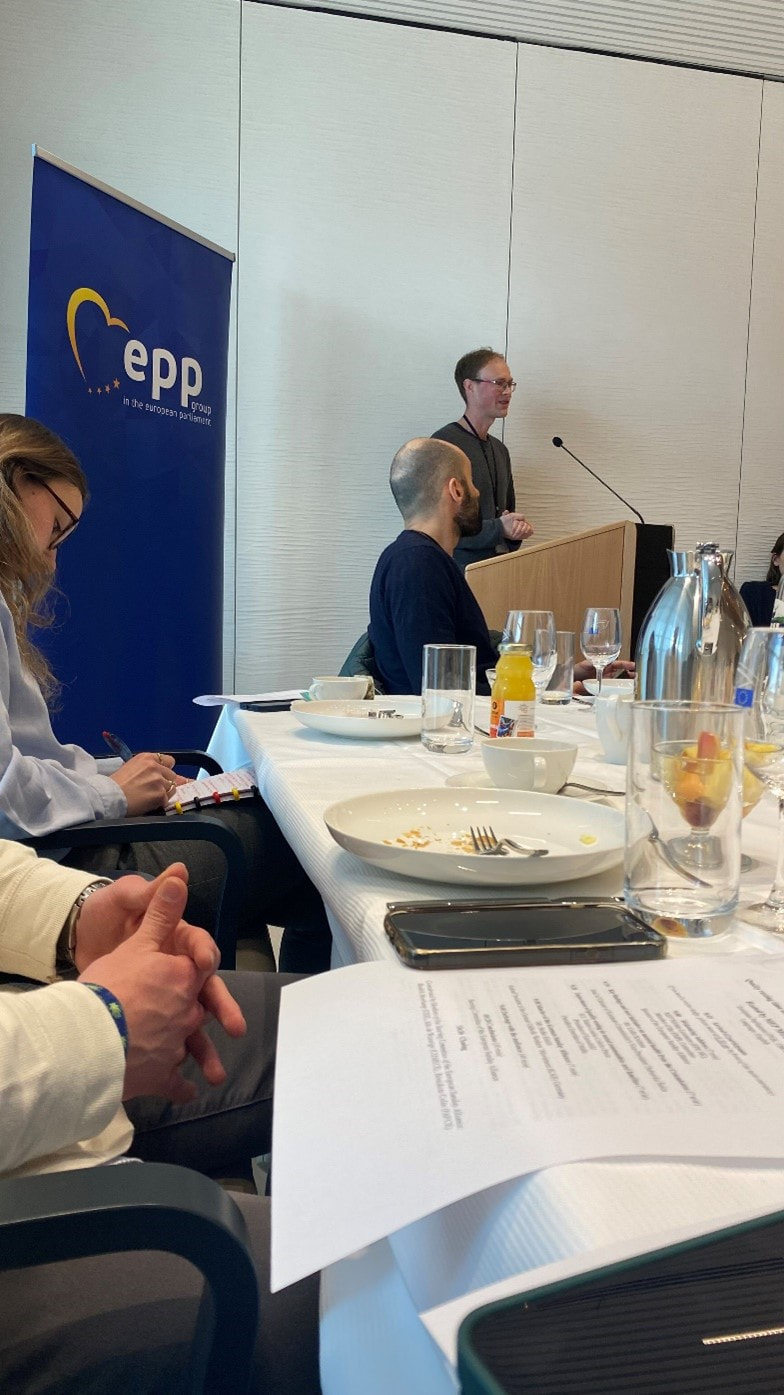
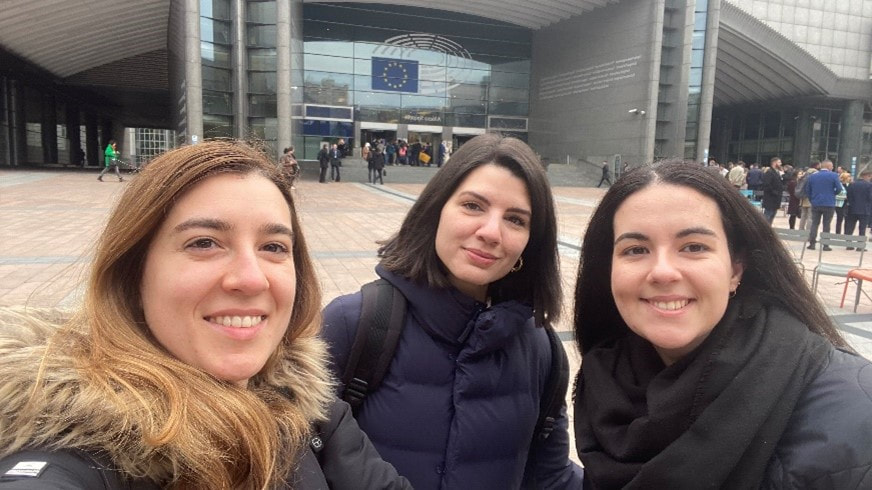
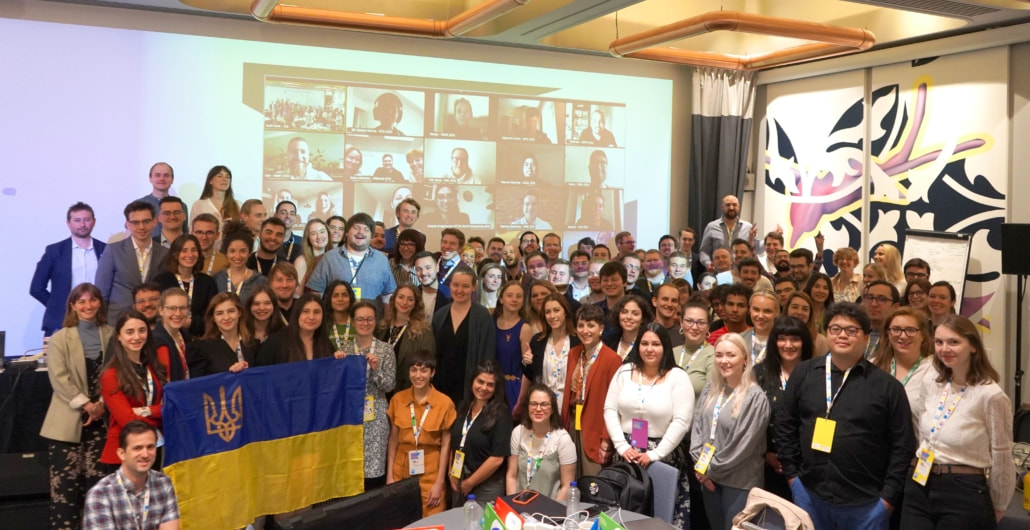
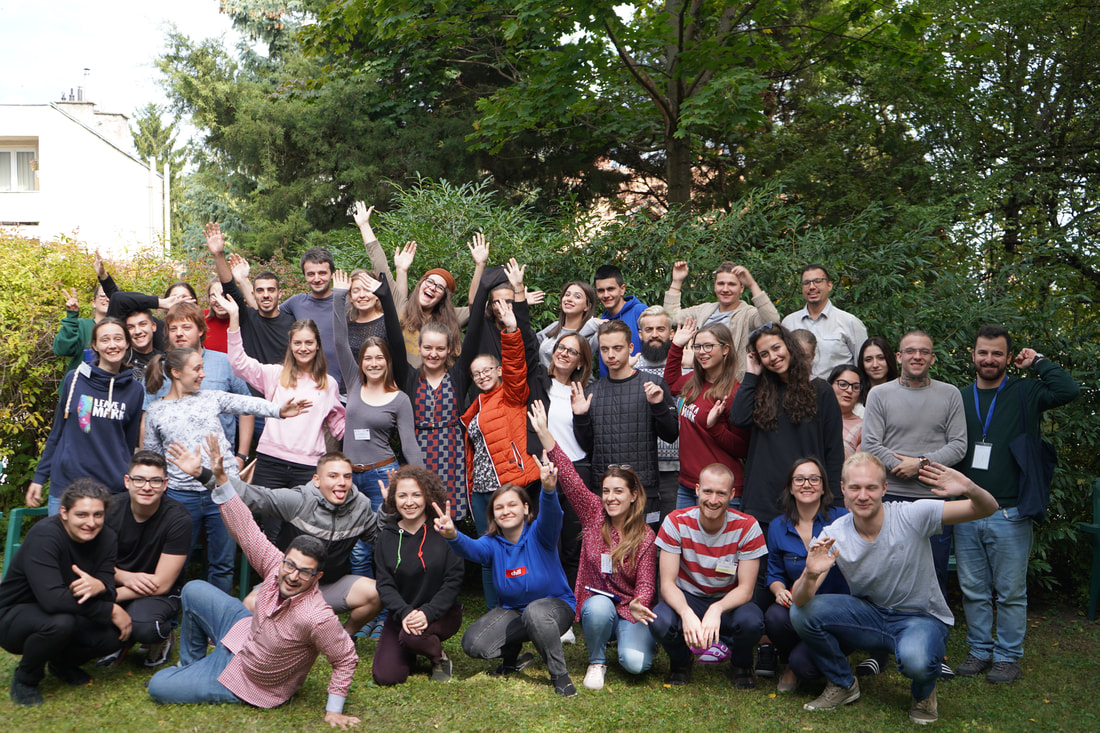
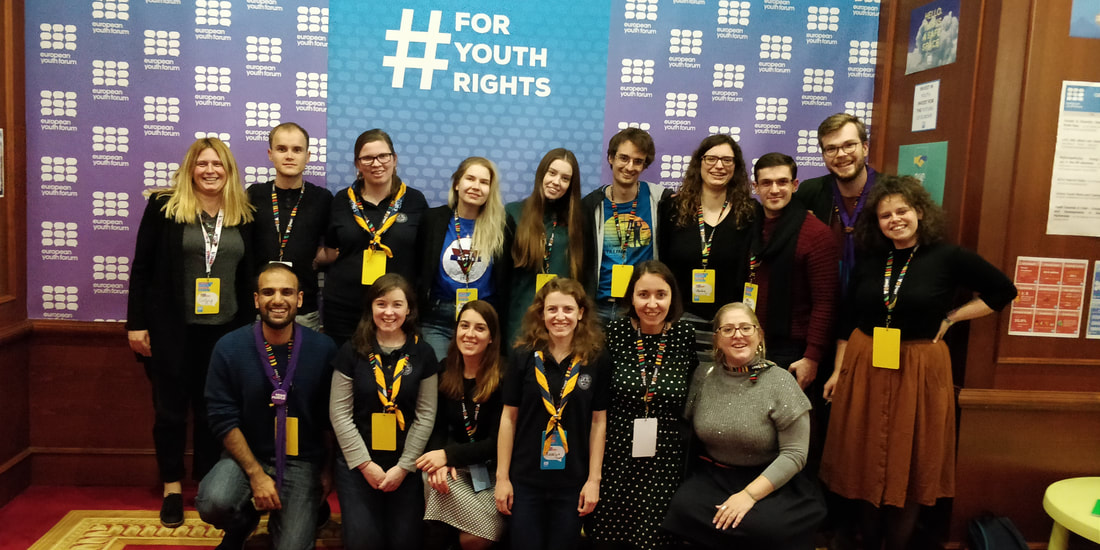
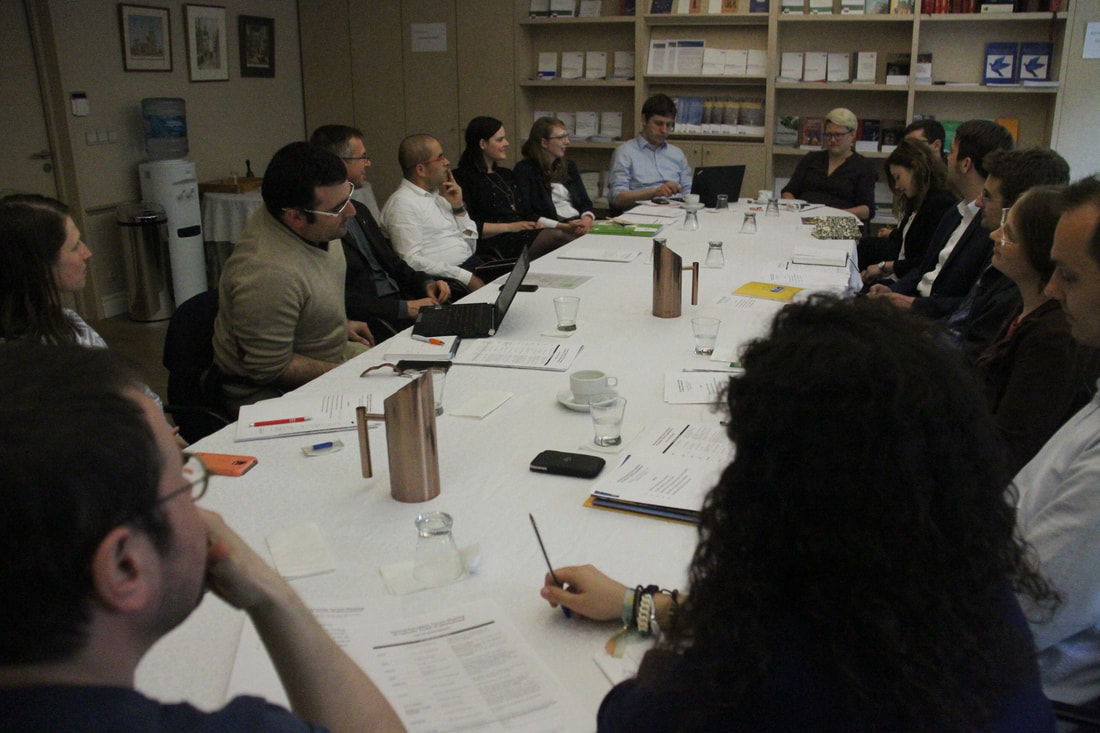
 RSS Feed
RSS Feed
